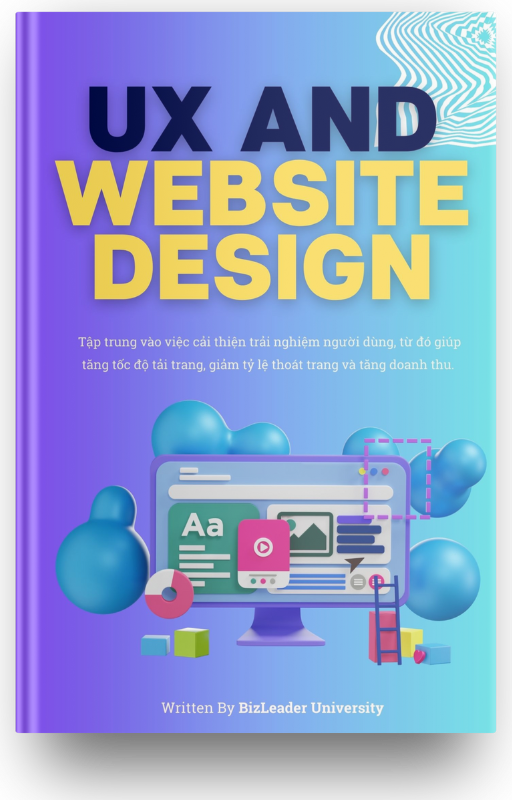Kiến thức kinh doanh
Business Value of Outsourced Product Testing
Business Value of Outsourced Product Testing – Nội dung cập nhật mới 2023
Chúng tôi là một nhóm các doanh nhân luôn đam mê giúp đỡ các doanh nghiệp phát triển. Chúng tôi hiểu những thách thức và cơ hội khi bắt đầu và điều hành một doanh nghiệp. Chúng tôi ở đây để giúp bạn từng bước trên con đường, cho dù bạn mới bắt đầu hay bạn đã sẵn sàng đưa doanh nghiệp của mình lên một tầm cao mới.
Chúng tôi tin tưởng vào sự chăm chỉ và quyết tâm, và chúng tôi biết rằng với sự hỗ trợ thích hợp, mọi thứ đều có thể. Chúng tôi rất vui được giúp bạn biến ước mơ của mình thành hiện thực. Trong kinh doanh, chiến lược đề cập đến một kế hoạch toàn diện giúp tổ chức đạt được các mục tiêu dài hạn. Một chiến lược kinh doanh được xây dựng tốt có tính đến điểm mạnh và điểm yếu của công ty, cũng như các cơ hội và mối đe dọa của nó. Mục tiêu của chiến lược kinh doanh là tạo ra lợi thế cạnh tranh cho công ty. Một chiến lược kinh doanh tốt phải phù hợp với sứ mệnh và tầm nhìn chung của công ty. Nó cũng phải đủ linh hoạt để thích ứng với những thay đổi trên thị trường.
Introduction
The recent sharp downturn in the economy is forcing independent software vendors to reconsider their approach towards product engineering. In light of the new business realities, companies are forced to consider how they can reduce their R&D budget, or get higher return on the same or incremental investments. However, it is becoming increasingly important for ISVs to enhance customer loyalty and reduce support cost! ISVs are realizing that one way to achieve this is by improving the quality of the product without increasing the cost of quality. Consequently, ISVs are actively considering outsourcing non-core functions like testing to cut costs quickly, avoid new capital investment, and improve product quality.
Why Outsource Product Testing
Testing is a vital phase in any product development initiative. Frequently changing requirements coupled with a reduced product development life cycle has increased the pressure on testing teams to do more at less. They face time crunch as well as resource crunch. A survey conducted by the National Institute of Standards and Technology (NIST) has found that US companies spend as much as $60 billion on fixing software defects at the post-release stage. This study also reveals that third party QA & Testing could have saved companies nearly $20 billion. The direct cost of quality in terms of staff time by itself is a compelling reason for considering QA & Testing outsourcing model. Though it is difficult to measure, the loss of revenue in terms of repeat business, due to unhappy customers, is also significant. A well structured outsourcing model can help ISVs reduce cost (by using less expensive resources) and increase the quality of the product, which ultimately results in satisfied customers. Migrating to an outsourced product testing model, where the onus of product quality is shared with the participating testing company, will give product companies a competitive advantage in the marketplace.
Current Situation – However, as per a Forrester report published in 2008, despite the enormous potential benefits of outsourcing, not many organizations currently outsource their testing activities. According to a survey of IT leaders, only 16% of organizations outsource software testing while 16% expect to outsource to a third party in the next 12 months. Though another 29% were considering using a third party for this service, a substantial 39% were not in favour of using this service. While this is one side of the story, the outsourced testing market is actually experiencing a rapid growth, and according to the same Forrester report, outsourced testing services is growing at 50% annually or higher. There is a growing awareness that software product testing is a specialized skill, and cannot be accomplished merely by any developer. But it is becoming increasingly difficult for CTOs to allocate enough funds to hire expert resources, or train the existing resources to meet the demand. As a consequence, product quality is increasingly being compromised.
Offshoreing
Though ISVs are slowly getting convinced about the benefit of outsourcing their QA activities to offshore partners, in most of the cases they merely treat this as a cost saving measure. Offshore outsourcing of product testing, if treated strategically, can yield more than just cost benefit. However, treating offshoring as process of simply moving existing software product testing to an offshore outsource partner may be counter-productive. Executives making the decision to offshore testing must draw the strategic plan for outsourcing, define their goal, and last but not the least, must understand the possible pitfalls of outsourcing. This will enable them gain maximum from their outsourcing initiative.
Challenges Faced in Outsourced Product Testing Activities
We all know that product development, being a more intense & involved process, differs from application development. Similar is the case of product testing. Hence, outsourced product testing comes with its own set of challenges. Some of the major challenges faced in outsourced product testing are:
- Partner integration: Success of an outsourced product testing initiative is based on the integration of methodology, usage of proper tools & technologies, and a right-sourcing approach. It is easier said than done. And is normally is the primary reason for failure of such initiatives.
- Proper communications management: Due to language and cultural barriers, time-zone difference, physical distance, and poor processes, many times it becomes difficult to have an effective communication process.
- Mismatched or miscommunication of expectations: Absence of a well-defined goal and an ineffective oversight process, along with poor communication, can create difference in expectations
- Lack of product engineering focus: Most of the offshore vendors are application service providers. Hence, they do not have the required expertise or more importantly, the necessary product mindset to test a product
- Management issues due to the lack of a workable test management process and associated methodology
- Vendor problems or vendor infrastructure problems such as poor data bandwidth.
- IPR protection concerns
Overcoming the Challenges
Many of the barriers associated with Outsourced Product Testing activities, as mentioned above, can be overcome by selecting an experienced and reliable testing partner with requisite product engineering expertise, quality orientation, structured processes, proven credentials, and an impeccable record on protecting its customer’s IP. This will ensure that product engineering principles are in use and best practices are consistently applied. Cost advantages are achieved through various means such as – optimization of the testing process, test automation, leveraging low-cost test centres. When successfully planned and executed, outsourced product testing can reduce the overall product engineering cost by 40% or more, as well as shortening the time to market and improve overall software quality. But to ensure the best possible results from product testing outsourcing initiative, you must:
- Hire specialist companies to conduct product testing, These companies should have strong background and proven track record in providing Product Engineering Services
- Plan the process thoroughly. Invest time upfront in benchmarking current performance thoroughly and prepare detail business case to ensure that the provider delivers a tangible return on investment
- Do not focus only on cost reduction. Take a strategic view of the engagement and select a partner rather than a vendor. This will ensure that you gain other tangible and intangible benefits
- Give proper importance to outsourcing location. Evaluate parameters such as past history, availability of skilled manpower, language capability, political stability, stable economy, etc., along with cost structures
Benefits
Cost savings, though a major result, is not the only benefit of outsourced product testing. Benefits from an outsourced product testing initiative become more significant when combined with a global delivery model and right-sourcing model. In addition, companies that have already out sourced their product development process will be benefited by using an independent third party for testing. Here the testing partner works as a certifying authority, providing unbiased insights into improving product quality. Following are the benefits that come out as a result of a successful outsourced product testing initiative.
- Higher return on QA investment: ROI of a product quality initiative includes the savings occurred due to decreased rework, increased customer satisfaction, lower support costs, and decreased product maintenance cost. An outsourced product testing program, if executed successfully using an offshore/ dual-shore model, not only lowers the cost of testing by reducing staff cost, but also helps to increase product quality. A company can save up to 40% in direct staff cost and another 10-20% in associated costs through outsourcing model.
- Shorter Revenue Realization Cycle: Outsourced product testing can help reduce time to market with the usage of additional skilled resources and test automation. This helps the company to reach market faster and protect/create competitive advantage. Hence, outsourced product testing initiative helps companies shorten their revenue realization cycle, which means they can achieve more with less capital or invest the free resources in growth related initiatives.
- Improved Efficiency: If properly planned, a well defined outsourced testing engagement can bring improvements in quality and delivery processes. Outsourcing engagements are governed by defined Performance Metrics (PM) and Service Level Agreements (SLA). Outsourced testing service providers have formal and proven testing methodologies rather than heuristic or experiential techniques to identify, generate, and execute test cases. These formal methodologies provide for enhanced coverage and defect identification resulting in an improvement in product quality. Clients can benefit from working with outsourced testing companies by sharing best practices and investing in process improvement initiatives.
- Flexible Scale: The testing lifecycle is characterized by staffing peaks and troughs. Managing this variation of utilization becomes a challenge for in-house testing departments. This always results in either lower utilization (higher cost) or non availability of skilled resourced when required most. But in an outsourced product testing scenario, managing the ebb and flow of resources becomes the responsibility of the testing partner. Hence, outsourced product testing provides a much needed degree of flexibility to the client Organisation, and allows them to focus on product design and development activities.
- Independence and Insight: Good software development practice calls for separating the development team from the testing team. The primary purpose behind this separation is to provide an unbiased view of the product quality. In many cases, these checks and balances are compromised due to constraints like product release pressure, same team working for both development and testing, absence of any proper certification process, etc. Outsourced product testing brings a certain degree of independence, leading to greater visibility of product quality issues. This unbiased and independent insight helps the product management team to make more informed business decisions on product release schedule and product quality.
In a distributed development scenario, when product development is outsourced, an outsourced testing team becomes even more valuable. The outsourced test team serves as the certification authority, providing for an unbiased third view, which is independent from client’s Organization and the outsourced development Organization. This evaluation is more objective as it is delivered independent of two reference points.
Conclusion
Outsourced Product Testing is not a new idea – current economic situation has made it more appropriate and attractive. Over a period of time, the process also has become mature and you have more offerings available from service providers. The current economy, customer’s intolerance towards product quality issues, and new competitions are leading more product companies to adopt the outsourced product testing initiative. Outsourced testing service providers, who compete with one another and whose core business is to provide these services, have also made an investment to go up the value chain by developing reusable IP in the form of automated testing frameworks and employing the necessary skilled resources to serve customers and maintain their competitive edge. These service providers have become more efficient over a period of time, and offer services faster, better and more cost-effectively compared to an in-house function.
The current recessionary state is opening up a strategic option for leaders: free up scarce cash for deployment elsewhere to focus on core capabilities. We see a greater flexibility in offerings from outsourced test service providers, and an overall increased receptiveness to outsourcing in general by Organizations. Globalization (aka flattening of the world) has also resulted in product companies seeking new ways of doing business, learning new techniques, optimizing the software manufacturing process, and making funds available for global initiatives. This makes the business case for outsourced product testing more appealing as it enables organizations to free up both its cash and critical resources and have a partner care for its quality. Outsourced product testing offers a strategic option to ISVs to be prepared to scale new heights when market conditions improve.
Đọc thêm các bài đăng liên quan Business Value of Outsourced Product Testing trong cùng danh mục
Chúng tôi bắt đầu công việc kinh doanh này vì chúng tôi muốn tạo ra thứ gì đó có thể tạo ra sự khác biệt trong cuộc sống của mọi người. Chúng tôi đam mê giúp mọi người đạt được mục tiêu của họ và chúng tôi cam kết cung cấp dịch vụ tốt nhất có thể. Chúng tôi quan tâm đến khách hàng của mình và sự thành công của họ, và chúng tôi cố gắng tạo ra trải nghiệm thú vị, hỗ trợ cho họ. Chúng tôi tin rằng khi khách hàng của chúng tôi thành công, chúng tôi thành công.
Doanh nghiệp của chúng tôi được xây dựng trên tiền đề rằng mọi người đều xứng đáng được lắng nghe, tôn trọng và có cơ hội thành công. Nhóm của chúng tôi rất đam mê tạo ra sự khác biệt trong cuộc sống của khách hàng và chúng tôi làm việc không mệt mỏi để đảm bảo rằng họ có trải nghiệm tốt nhất có thể với công ty của chúng tôi. Chúng tôi tin rằng công việc của chúng tôi tạo ra tác động tích cực đến thế giới và chúng tôi cam kết trở thành động lực vì mục tiêu tốt trong mọi việc chúng tôi làm.
Danh mục chính
Từ khóa nội dung
- Business strategy examples
- Types of business strategy
- How to build business strategy
- Type of strategy in business
- How important is strategy in achieving goals
- Business Strategy
- business strategy definition
- How to build business strategy
- Define business strategy
- The role of business strategy
- Marketing strategy example
- What is marketing strategy
- Types of marketing strategy
- How to build marketing strategy
- Marketing strategy of Coca-Cola
- Digital marketing strategy
- Solution for marketing strategy
- Planning a marketing strategy
- Leadership Sustainability
- The importance of leadership
- leadership and management
- Difference between leadership and management
- transformational leadership
- Ví dụ về chiến lược kinh doanh
- Các loại chiến lược kinh doanh
- Cách xây dựng chiến lược kinh doanh
- Cách xây dựng chiến lược kinh doanh
- Vai trò của chiến lược kinh doanh
- Ví dụ về chiến lược tiếp thị
- Chiến lược tiếp thị là gì
- Các loại chiến lược tiếp thị
- Cách xây dựng chiến lược tiếp thị
- Chiến lược tiếp thị của Coca-Cola
- Chiến lược tiếp thị kỹ thuật số
- Giải pháp cho chiến lược tiếp thị
- Lập kế hoạch chiến lược tiếp thị
- Lãnh đạo Bền vững
- Tầm quan trọng của lãnh đạo
- lãnh đạo và quản lý
- Sự khác biệt giữa lãnh đạo và quản lý
- lãnh đạo chuyển đổi




